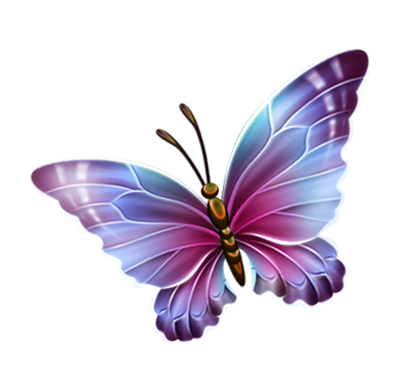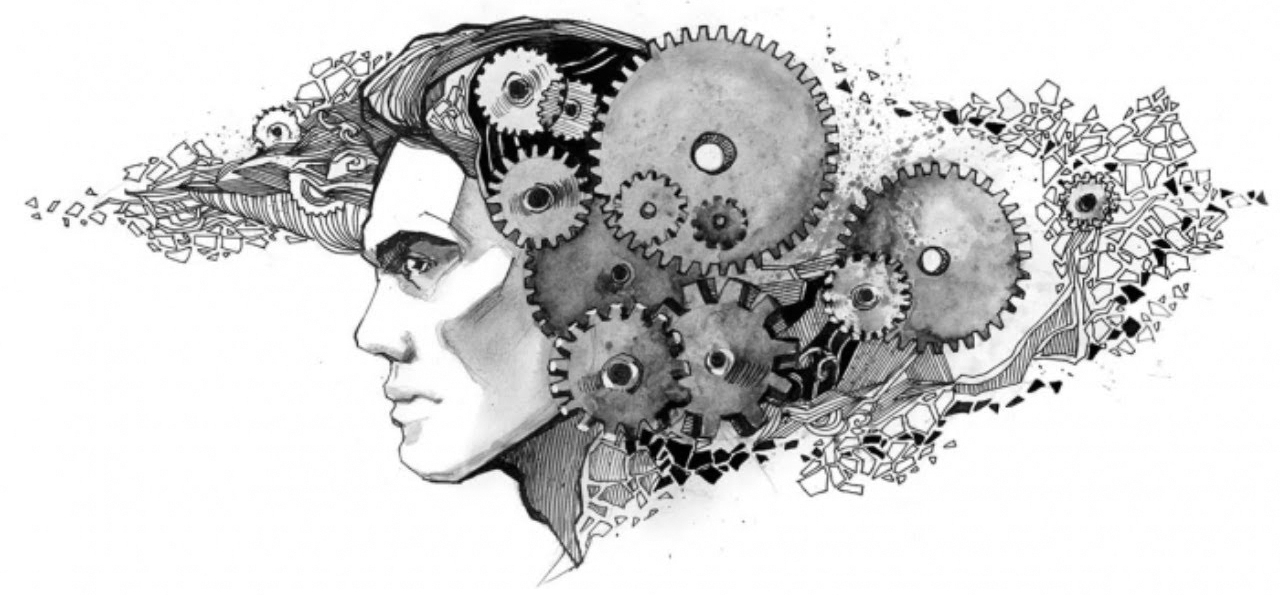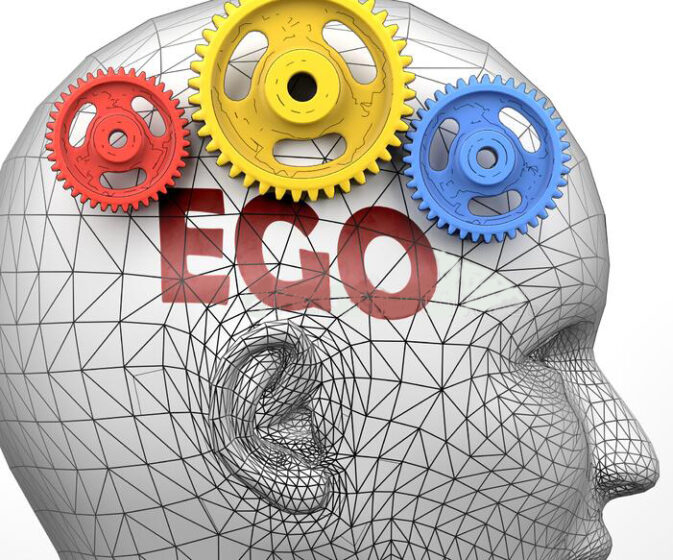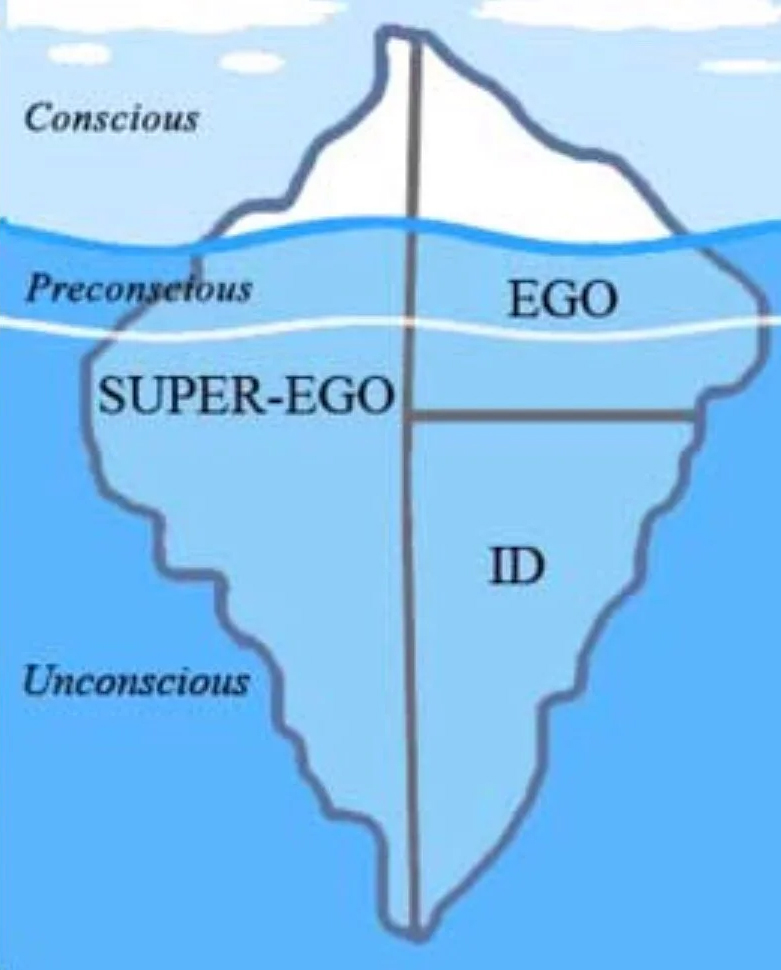
Psychology, Ego & the Mind 

What stands in our way to heal ourselves, to overcome adversity, to deal with a disability, an addictive behaviour or habit? The answer—we are—you are—I am! We know what we have to do, but why is it so hard? Why is so difficult to stay committed? Why can’t I heal? Why can’t I find happiness? Why, why, why! It is the EGO mind that is holding us back. That part of our brain, our mind, that identifies with the image or perception of self. The ego is our identity and we tend to fight it consciously and unconsciously.
“The bigger your heart, the more you love, the more you control your life.
The bigger your ego, the more you’re scared, the more others control your life.”
— Maxime Lagacé
![]()
What is our identity? It is a collection of beliefs, experiences and memories that construct our personal story. The ego operates on the principle of distinction, whereby it constantly needs to assert its uniqueness. The ego and the soul perform a perpetual dance within the mind. The ego seeks validation, recognition and distinction, while the soul yearns for unity, love and inner peace. Being able to distinguish between these two internal forces is the key to embracing a more fulfilling, purpose-driven life.
The ego mind is…
- Driven by fear and desire. Our beliefs; what is right and what is wrong and our prejudices
- Seeks external validation. Based on experiences, past events that shape present reactions.
- Established in the material world. Memories and recollections used to validate its identity.
- Functioning on judgements and comparisons. Structures that trap one into repetitive patterns and prevent growth.
The soul seeks inner harmony and connection. It is grounded in love and compassion. It operates on acceptance, understanding and compassion.
“All you need to know and observe in yourself is this:
Whenever you feel superior or inferior to anyone,
that’s the ego in you.” — Eckhart Tolle
![]()
Why does the Ego tend to dominate our consciousness?
 From a very early age, our environment influences our consciousness which develops our ego. Our parents, relatives, teachers, religion, the media and propaganda expose, influence and mould and contribute to what defines our unconscious personality (the ID). That complicated personality is an integral part of the ego and it determines how we think and respond to stimuli, situations and dialogues (fight or flight). When we are rewarded for certain behaviours; that behaviour becomes reinforced. The world around us reinforces our ego’s dominance. This then creates the endless cycle of the ego being addicted to reinforcement; the relentless pursuit of achievements, habitual behaviours, possessions and validations, and constant, nagging bid for happiness. Without us ever knowing it; our ego dominates our subconscious mind and how we project ourselves into our environment and our terrain.
From a very early age, our environment influences our consciousness which develops our ego. Our parents, relatives, teachers, religion, the media and propaganda expose, influence and mould and contribute to what defines our unconscious personality (the ID). That complicated personality is an integral part of the ego and it determines how we think and respond to stimuli, situations and dialogues (fight or flight). When we are rewarded for certain behaviours; that behaviour becomes reinforced. The world around us reinforces our ego’s dominance. This then creates the endless cycle of the ego being addicted to reinforcement; the relentless pursuit of achievements, habitual behaviours, possessions and validations, and constant, nagging bid for happiness. Without us ever knowing it; our ego dominates our subconscious mind and how we project ourselves into our environment and our terrain.
“You are not one person, but three: The one you think you are;
The one others think you are; The one you really are.”
— Sathya Sai Baba
![]()
The Ego by nature seeks love, peace and happiness.
 The ego, by its very nature, seeks and thrives on separation. It is constantly drawing boundaries, creating an “us versus them” mindset. Yet, at the very core of every soul there is a want and desire to seek love, peace and happiness.
The ego, by its very nature, seeks and thrives on separation. It is constantly drawing boundaries, creating an “us versus them” mindset. Yet, at the very core of every soul there is a want and desire to seek love, peace and happiness.
When the ego controls our actions, love becomes conditional, a transaction based on reciprocity—“I’ll love you if you love me back.” Peace and happiness becomes sought after externally, often in the form of material possessions or social status.
In reality, true love, peace and happiness emanates from within. By moving beyond, or conquering our ego, we are then able to tap into an endless supply of love and calmness. How we get there is through meditation and mindfulness which are featured on this website as well as by making changes to our eating habits, the food we consume, how we nourish our bodies; the environment or terrain we surround ourselves with. In so doing, we can remain undisturbed, regardless of what is going on in the world around us. This is often referred to as Zen.
The Ego, however, is not who you really are. The ego is your self-image; it is your social mask;
it is the role you are playing. Your social mask thrives on approval.
It wants control, and it is sustained by power, because it lives in fear.”
— Deepak Chopra
![]()
How to become empowered and take control of your life?
What does empowerment feel like? It is consciously taking control of your life. Let go and rise above the ego. Like in the diagram of the iceberg–rise above the ID, the EGO and the SUPER-EGO. Know that you are the one in control and calling the shots. Know that you are in charge of your own life, the decisions you make and the reasons why. You have the strength, the courage and the confidence to live the life you choose.
It is about consciously knowing that the everyday things that you do will help you to achieve your long-term goals. Live your life with purpose. Be safe in the knowing that you have the power and ability to change your situation, or to have a positive impact on the world around you.
“If you want to reach a state of bliss, then go beyond your ego and the internal dialogue.
Make a decision to relinquish the need to control, the need to be approved, and the need to judge.
Those are the three things the ego is doing all the time. It's very important to be aware of them every time they come up.”
— Deepak Chopra
![]()
The following are steps to help you empower yourself:
- Listen to your gut. Follow your instincts. By all means, take other people’s advice into account, but don’t let that override what your gut is telling.
- Check in with yourself. Take 10 minutes out of your day to connect with how you are feeling, meditate or be in silence with yourself.
- Create an empowering environment. Get rid of things that you don’t need in your life. Declutter. Simplify. Remove distractions.
- Follow through and follow. Review where you are and how far you have come. Make a check list.
- Don’t be afraid to fail. The ups and downs that we experience in life always teach us something. Nothing ventured; nothing gained!
- Be vulnerable. If you are constantly on guard, protecting yourself from bad, then you are risking missing out on all the good things that could possibly happen. Have the confidence to put yourself out there.
- Don’t be afraid to ask for help. Acknowledge and recognize your weaknesses. Knowing that you need help is a form of empowerment. It opens the door to learn from others.
- Reach your to your community. Beyond your friends and family, there is a lot of support to be had within your own local community.
- Express yourself. Learn to express yourself through creativity. Express your thoughts and feelings unapologetically, respectfully with eloquence.
- Don’t feel responsible for the happiness of others. You are not responsible for anyone’s happiness but your own. You can play a part, contribute to their happiness, but they are their own person and their happiness is entirely their own responsibility.
A healthy mind equals a healthy body.
By practicing and incorporating many of the things mentioned on this website and doing your own research through books, articles, videos, podcasts, internet and community support groups as well as many health organizations in your areas, you will find the help and support that you need to overcome whatever it is that is blocking you from your true self; your health and well-being.
"Pain is highly responsive to each person's psychology and mindset...Those who expect worse pain, ruminate on it and feel helpless about it - what's called pain catastrophizing – feel more intense pain, stay longer in hospitals after surgery and often require more painkillers. On the other hand, those who shift to a positive mindset feel less pain, spend less time in hospitals and require fewer pain medications.”
— Beth Darnall, PhD, clinical psychologist
![]()
Resource: Wikipedia
Resource: Wisdom Experience
Resource: Psychology Today
Resource: Life Architeckture